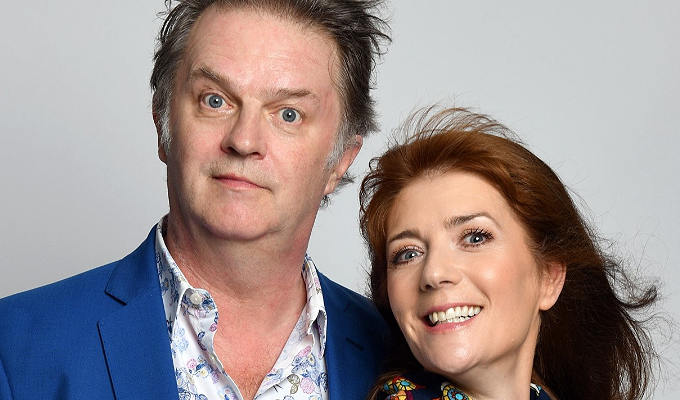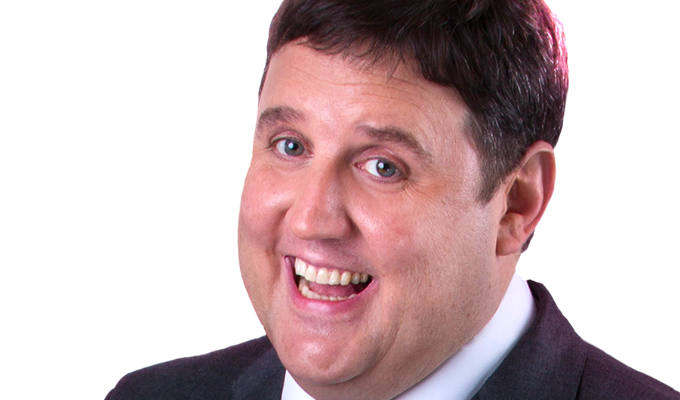
John Kearns: Don't Worry They're Here
Note: This review is from 2017
Edinburgh Fringe comedy review by Steve Bennett
With his tonsure wig and comedy false teeth, John Kearns is instantly identified as ‘weird’.
And that mean’s he’s never guaranteed an easy ride, despite his Edinburgh Comedy Awards (plural). The 800 people in the audience when he supported Russell Kane on tour in Kent were certainly not impressed and stared blankly at him.
Even in his own room, he enters to an uneasy silence, which he sees as a sign of distrust, an indication that he’s going to have to re-prove his abilities. We're surely not that judgmental, not really, but Kearns is at his best when he's on his back foot, vehemently convincing us about observations that are, to him, self-evidently true, or references not everybody gets. Knowledge of Bertie Bassett is not as widespread as you might think.
Kearns’s peculiar stage get-up is an effective way to quickly create that unequal, awkward dynamic which generates so many laughs. But behind all these trappings Kearns is no out-and-out oddball, more of an everyday outsider, just writ a little larger than normal.
Don’t Worry, They’re Here is a monologue about of everyday absurdities, rooted in mundane conversations with his local cafe owner and a story about a bet he placed at the bookies. For, counter-intuitively, Kearns’ stage persona has the trivial concerns of a regular man in a small world, even if he is unusually insistent in expressing them.
There is such precision in the writing, from the very particular references he uses, to the fine incidental details, to the authentic turns of phrase. Kearns puts inventive quirks in the narrative so it spins eccentrically, but the situations are recognisable. It’s droll and distinctive – but also full-on hilarious.
Within the everyday, Kearns finds some sincere philosophies, such learning not to attach conditions to happiness. He's a man of modest but unattainable dreams, holding out the hope that things will turn around for him, which is a very endearing stance. There is also a profundity to his musings – or at least some of them. Other bits are just about opening a creme egg, but the writing is still beautifully detailed.
In the end, he winds up considering the finite time we have, being left with only the memory of memory as we age, the clock moving ever-forward as old flames get married and friends drift away. There is a flicker of truth in this wistful nostalgia, most likely drawn from Kerns’s real life as he turns 30 and old pals find new lives.
There’s a quirky charm to his persona that’s a little old-fashioned, a little out of place. No wonder he evokes Eric Morecambe as a pinnacle of entertainment. And as a fully-rounded character who is exaggerated but credible, flawed but hopeful, Kearns’ alter-ego could have been written by those other icons of comedy gone by, Galton and Simpson. I can't think of much higher praise than that.
Review date: 13 Aug 2017
Reviewed by: Steve Bennett








